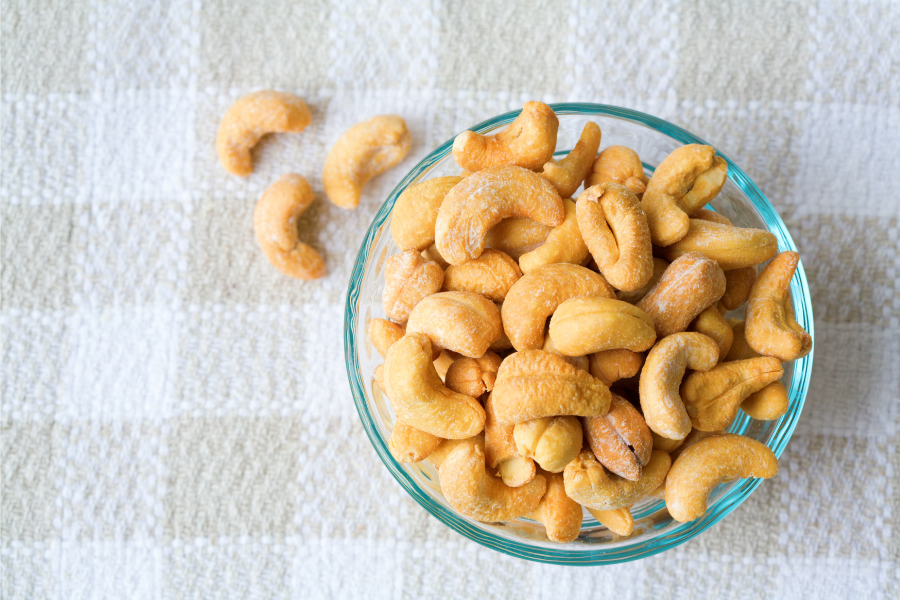We are both health enthusiasts (or are trying to be) and proud dog owners, so we are always looking for new things and nutritious foods we can try, and even share with our pups. And while there are many vegetables and fruits that are beneficial for humans to eat, not all are suitable for dogs. This leads us to the blue-colored fruit in the picture above - blueberries. Can dogs eat blueberries? If so, how much can they have? We are going to answer these questions and more today, so let's dive in!
The Short Answer: Yes, Dogs Can Have Blueberries!
Blueberries are not only safe for dogs to eat, but they’re also packed with nutrients that can benefit your pet’s health. These tiny, delicious berries are low in calories and high in vitamins, minerals, and antioxidants. But before we get into the nitty-gritty, let’s explore why blueberries make a great treat for your dog.
Nutritional Value of Blueberries
Blueberries are a superfood for humans, and it turns out they’re pretty super for dogs too! Here’s what makes them so special:
- Antioxidants: Blueberries are rich in antioxidants, which help fight free radicals in the body. Free radicals can cause cellular damage and contribute to aging and diseases such as cancer.
- Vitamins: These little berries contain high levels of vitamins C and K. Vitamin C is essential for immune system function, while vitamin K plays a role in bone health.
- Fiber: Fiber aids in digestion and can help keep your dog’s gastrointestinal system running smoothly.
- Low in Calories: At only 84 calories per cup, blueberries are a guilt-free treat for dogs who need to watch their weight.
- Water Content: Blueberries are about 85% water, making them a hydrating snack for your dog, especially on hot days.
Health Benefits of Blueberries for Dogs
Now that you know what’s in a blueberry, let's discuss how these nutrients can benefit your dog:
- Improved Digestion: The fiber content in blueberries helps regulate your dog's digestive system, preventing constipation and promoting regular bowel movements.
- Enhanced Immune System: The vitamin C in blueberries boosts your dog's immune system, helping them fight off illnesses.
- Better Vision: The antioxidants in blueberries, particularly vitamins A and C, support eye health and can even reduce the risk of cataracts and other age-related eye issues.
- Healthy Skin and Coat: The antioxidants and vitamins in blueberries promote skin and coat health, keeping your dog looking and feeling their best.
- Cognitive Function: Studies have shown that the antioxidants in blueberries can slow down cognitive decline in aging dogs, keeping their minds sharp and alert.
How to Safely Feed Blueberries to Your Dog
- While blueberries are generally safe for dogs, it’s important to follow some guidelines to ensure your pet enjoys them safely:
- Wash Thoroughly: Always wash blueberries to remove any pesticides or contaminants.
- Moderation is Key: Even though blueberries are healthy, they should be given as a treat and not replace a balanced diet. Too many blueberries can cause stomach upset or diarrhea.
- Serve Fresh or Frozen: Fresh and frozen blueberries are both excellent choices. Frozen blueberries can be especially refreshing on a hot day.
- Avoid Additives: Do not give your dog blueberries that have added sugar, salt, or other seasonings. Stick to fresh, plain blueberries.
Can All Dogs Eat Blueberries?
While we wish we could answer this with a resounding yes, it is not the case. For most dogs, blueberries are absolutely ok. There are some dogs who may not tolerate them well, and also a few things to keep in mind if you do decide to give your dogs blueberries:
- Some pups have allergies. Just like people, dogs can have food intolerances or allergies, and blueberries could be one. If you notice any signs of a reaction like an upset stomach, vomiting, itching, or breathing issues, call your vet ASAP.
- Dogs can get diabetes too.... And being a fruit, blueberries do contain sugar (albeit a lower amount of sugar than other fruits). If your dog does have diabetes, it is a could idea to have a conversation with your vet about whether or not blueberries are safe for your dog to consume.
- Size does matter: we know not everyone likes to hear it, but in the case of blueberries being a choking hazard, it's true. Especially if you have a small breed, it is a good idea to cut the blueberries in half before your dog eats them.
Can I Feed My Dog Blueberry-Flavored Products?
Good question! Because blueberries are absolutely delish (you probably agree or you would not be reading this blog, right!?), food companies have created blueberry-flavored products, including pet food! If you're shopping for some blueberry-flavored treats for you or your pup, make sure you scan the ingredient labels carefully. Try to avoid products that contain added sugars, artificial flavorings or colorings, or preservatives. Go only for products that contain real blueberries as an ingredient, no fake stuff!
Conclusion: Blueberries Are a Berry Good Choice!
Blueberries are a tasty, nutritious gift from mother nature. Because they are sooo dense with nutrients like vitamin C, they have a multitude of nutritional benefits. And the best part is they can benefit both humans and doggos, making them a top-notch treat.
With that said, they are not for every dog. As with every new food you introduce to your pet, doing so slowly, carefully, and in moderation is imperative. Monitor your pup for any negative reactions, and call your vet if you have any questions or concerns.
FAQ
Why Can't Some Dogs Eat Blueberries?
Most of the time you do not have to worry about your pooch getting into some blueberries. There are some reasons, however, why some dogs cannot or should not chow down on blueberries. Dogs with diabetes should most-likely not eat blueberries. Other dogs may even be allergic to blueberries. And lastly, because blueberries can be a choking hazard for small dogs, if you have a small breed this is something to be aware of. We always recommend giving your vet a buzz with specific medical questions as it related to your dog and their diet.
How Many Blueberries Can I Give My Dog?
Moderation, moderation, moderation. If nothing else, we want this to be the key takeaway from you reading this blog! The precise number of blueberries that is ideal for your dog depends on their size and weight. Here is a general guideline:
- Small Dogs: 2-3 blueberries per day as treats.
- Medium Dogs: 4-6 blueberries per day.
- Large Dogs: 6-10 blueberries per day.
What Berries Are Toxic to Dogs?
While blueberries are a safe and healthy treat for dogs, it's important to know that not all berries are dog-friendly. Here are some common berries that are toxic to dogs and should be avoided:
- Holly Berries: These bright red berries might be tempting for dogs, but they can cause severe digestive upset, including vomiting and diarrhea.
- Mistletoe Berries: Often associated with holiday decor, mistletoe berries are highly toxic and can cause gastrointestinal distress and cardiovascular issues if ingested.
- Yew Berries: Found on yew trees and shrubs, these berries are extremely toxic and can be fatal if ingested by dogs. They affect the central nervous system and can lead to severe illness or death.
- Juniper Berries: While not usually fatal, juniper berries can lead to kidney issues and digestive problems in dogs. It's best to avoid them altogether.
- Baneberries: These attractive red and white berries are toxic and can cause gastrointestinal and respiratory issues in dogs.
- Pokeberries: Found on pokeweed plants, these berries are highly toxic and can cause vomiting, diarrhea, breathing issues, and even convulsions.
Always keep an eye on your dog during walks or outings in areas where these berries might grow. If you suspect your dog has ingested any toxic berries, contact your veterinarian immediately for advice and possible treatment. Being informed and vigilant will help keep your furry friend safe and
Can Blueberries Upset a Dog's Stomach?
For the most part, blueberries are totally fine to feed a dog, and they can even be beneficial. However, just like people, every dog is different and each dog has different tolerances, and intolerances. Some dogs may be either intolerant to blueberries or they may simply get an upset stomach if they consume too many. That is why it is important to only give dogs blueberries in moderation, especially if they have not consumed them before. Try giving your pup just a small number of blueberries (i.e. a few) to start, and observe if and how well they tolerate them.
References
1) Kalt W, Cassidy A, Howard LR, Krikorian R, Stull AJ, Tremblay F, Zamora-Ros R. Recent Research on the Health Benefits of Blueberries and Their Anthocyanins. Adv Nutr. 2020 Mar 1;11(2):224-236. doi: 10.1093/advances/nmz065. PMID: 31329250; PMCID: PMC7442370.



